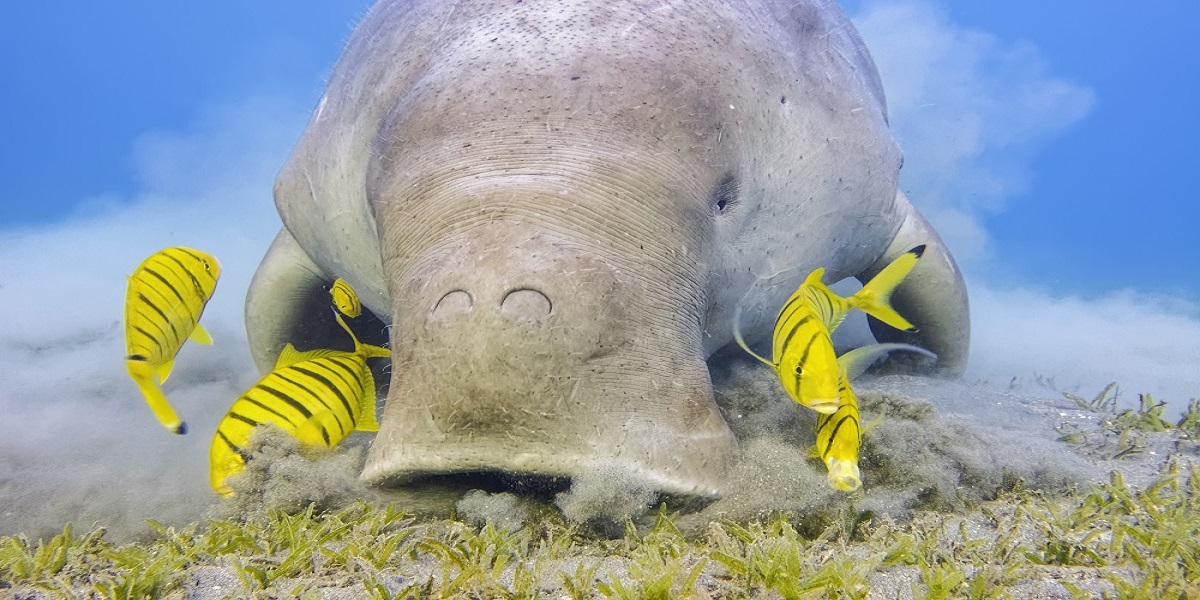
Scientific name
Dugong dugon
Locally known as
Baqrat albahar
IUCN status
Vulnerable
Description
The Dugong, the only marine herbivore, is a grey-brown animal that has a powerful fluked tail and small front flippers, which act like paddles to stabilise it when it swims. Their forelimbs are also used for scratching, mouth-cleaning and supporting the body when resting. Their movement is often slow and graceful. An air-breathing mammal totally adapted to life at sea, it spends much of its time grazing on the seagrass.
Key threats
Entrapment in abandoned fishing nets, habitat loss, marine pollution and boat collisions.
Where they're found today
Dugongs are found in Australia, the Arabian Gulf and parts of the Red Sea, northern and eastern coast of East Africa, Sri Lanka, India, Indonesia and the Pacific Islands. Australia has the largest population of Dugongs, followed by Abu Dhabi.
Abu Dhabi’s efforts
EAD has been protecting and studying the Dugong since 1999. We protect population of around 3000 Dugongs, mostly in the waters of Marawah Marine Biosphere Reserve (MMBR) and Al Yasat Marine Protected Area. Bu Tinah in MMBR has the densest Dugong population in the world. The UAE is signatory to the United Nations Environmental Programme - Convention on Migratory Species Dugong Conservation Memorandum of Understanding and has joined Dugong range states to protect them and their habitats globally, regionally and locally. EAD also host the office of the Convention on Migratory species at our headquarters in Abu Dhabi. Long-term research and conservation plan carried out by EAD includes regular aerial survey of the species, investigation of mortality, satellite telemetry to study migration, and study of genetics.
Fun facts
- They are more closely related to elephants than to marine mammals such as whales and dolphins.
- They are often referred to as “sea cows” because they feed almost exclusively on sea grass.
- They sometimes breathe by "standing" on their tail with their heads above water especially when the sea condition is rough.
